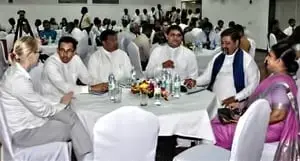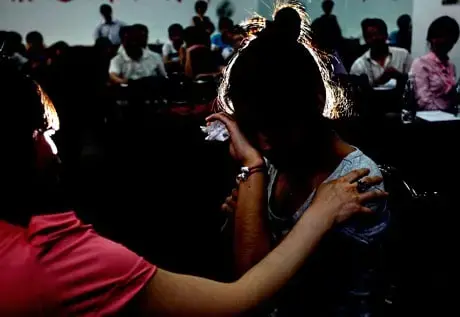Paul Robilliard, Australian Ambassador to the Kingdom of Thailand and Yoriko Yasukawa, Regional Director, United Nations Population Fund (UNFPA) Asia-Pacific.
Bangkok – The 2012 New Delhi gang rape on a bus that eventually resulted in the young woman’s death. The 2015 Chiang Mai case of a woman who was beaten and killed. This year’s so-called “honour killing” of a prominent feminist and social media star in Pakistan.
These are just a few of the horrific incidents of violence against women (VAW) across Asia and the Pacific in recent years.
But for every incident that makes the headlines, there are millions more that go unreported, pointing to the urgent need to collect better data on violence against women – so that governments, civil society and international agencies can better address what is truly a regional and global crisis.
Now, a three-year initiative launched this week by UNFPA Asia-Pacific and the Australian Government’s Department of Foreign Affairs and Trade, titled ‘kNOwVAWdata’, seeks to do just that.
A 2013 World Health Organisation study estimated that more than a third of all women globally will experience physical or sexual violence at some point in time – most of it caused by intimate partners, men who were meant to be trusted to respect and care for them.
In countries across Asia and the Pacific, surveys reveal that between 15 per cent and 69 per cent of women have experienced such violence. While the extent of VAW varies across borders, it occurs in every society, at all levels of development, and targets women regardless of status or background.
Getting better evidence about VAW, not surprisingly, is hugely difficult. Far too many women remain silent for a number of reasons. Their husbands or partners might beat them up again. Or they are afraid of not being taken seriously, or even of being blamed for having “provoked” the violence in the first place. These fears cause crippling isolation and guilt. The silence, stigma and prejudice involved keep the crisis hidden.
For some time now, UNFPA and partners have sought to obtain better VAW data by conducting prevalence studies in several countries in our region. Decision makers and community leaders need reliable data and information to draft and implement meaningful legislation and policy that makes a difference.
In Kiribati and the Solomon Islands, both in the Pacific, national policies to end violence against women have been adopted and national action plans are being implemented.
Similarly, in Viet Nam, the first-ever national survey on VAW in 2010 engaged key national policymakers and led to the development of government guidelines on implementation of the domestic violence law. Follow-up analysis of this data in 2014 identified risk factors for violence, and will help further refine programme interventions.
More recently, in Lao PDR, that country’s landmark survey on VAW has helped raise awareness of the extent of the crisis, with government and civil society acknowledging the need to work together to address it.
The ‘kNOwVAWdata’ initiative will build on accomplishments to date, and further strengthen and expand this crucial work across Asia and the Pacific.
Conducting the studies remains an intricate exercise, fraught with challenges. That’s why a key aspect of kNOwVAWdata is to help train researchers and interviewers to collect and analyse data on the extent and nature of violence women are experiencing, using robust and proven methodologies.
Women who have never spoken out before need to trust the interviewers. In turn, the interviewers need special training in nurturing this dialogue, as well as responding to calls for help that may emerge during the process by providing referrals to support services when women do disclose the violence they’ve suffered.
Participating in these surveys has a profound impact on the respondents and interviewers alike. In many cases, respondents report feeling better by sharing their burden. Interviewers – the vast majority of whom are women too -- are often transformed by the experience as well.
That’s why these studies are unique. The right combination of expertise, capacity building, training and support are essential to ensure that data collection, analysis and reporting are done safely, in line with international standards. This includes protecting women who have already experienced violence from further harm, ensuring their confidentiality and providing effective referral support.
Building on the past, strengthening the future – all of this helps us move ever closer to fulfilling one of the most important targets of the 2030 Sustainable Development Agenda, that of bringing about an end to the scourge of violence against women, and fulfilling the pledge to “leave no one behind”.
Acknowledging this crisis, breaking the silence, obtaining solid evidence, exploring the complex and deep-rooted factors that contribute to violence, and fostering collaboration to tackle it jointly – all of this is underpinned by the need to know VAW data to work towards ending violence against women.





